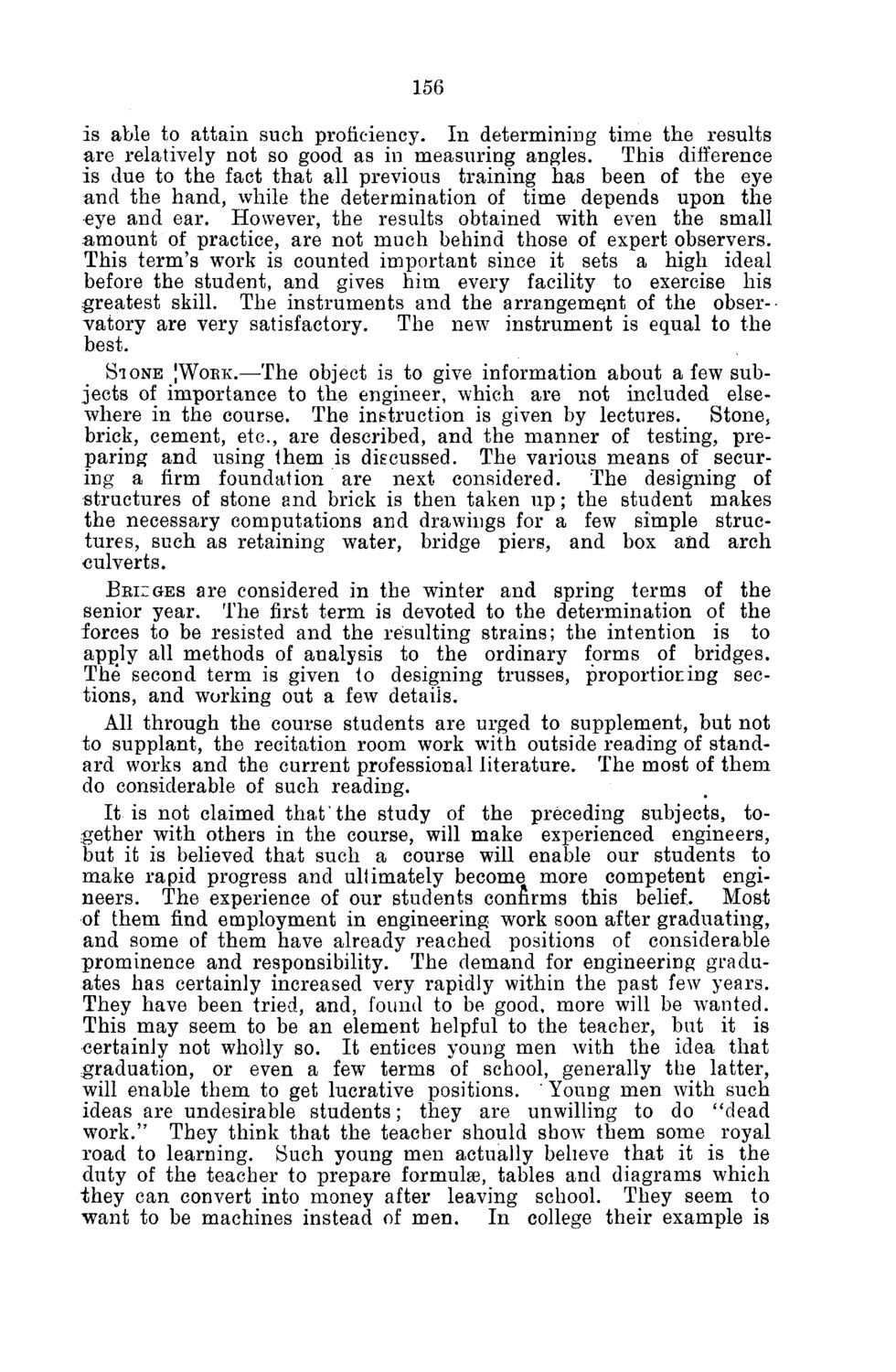| |
| |
Caption: Board of Trustees Minutes - 1886
This is a reduced-resolution page image for fast online browsing.

EXTRACTED TEXT FROM PAGE:
156 is able to attain such proficiency. In determining time the results are relatively not so good as in measuring angles. This difference is due to the fact that all previous training has been of the eye and the hand, while the determination of time depends upon the eye and ear. However, the results obtained with even the small amount of practice, are not much behind those of expert observers. This term's work is counted important since it sets a high ideal before the student, and gives him every facility to exercise his greatest skill. The instruments and the arrangement of the observatory are very satisfactory. The new instrument is equal to the best. Si ONE JWOEK.—The object is to give information about a few subjects of importance to the engineer, which are not included elsewhere in the course. The instruction is given by lectures. Stone, brick, cement, etc., are described, and the manner of testing, preparing and using them is discussed. The various means of securing a firm foundation are next considered. The designing of structures of stone and brick is then taken u p ; the student makes the necessary computations and drawings for a few simple structures, such as retaining water, bridge piers, and box and arch culverts. BRUGES are considered in the winter and spring terms of the senior year. The first term is devoted to the determination of the forces to be resisted and the resulting strains; the intention is to apnly all methods of analysis to the ordinary forms of bridges. The second term is given to designing trusses, proportioning sections, and working out a few details. All through the course students are urged to supplement, but not to supplant, the recitation room work with outside reading of standard works and the current professional literature. The most of them do considerable of such reading. It is not claimed that the study of the preceding subjects, together with others in the course, will make experienced engineers, but it is believed that such a course will enable our students to make rapid progress and ultimately become more competent engineers. The experience of our students confirms this belief. Most of them find employment in engineering work soon after graduating, and some of them have already reached positions of considerable prominence and responsibility. The demand for engineering graduates has certainly increased very rapidly within the past few years. They have been tried, and, found to be good, more will be wanted. This may seem to be an element helpful to the teacher, but it is certainly not wholly so. It entices young men with the idea that graduation, or even a few terms of school, generally the latter, will enable them to get lucrative positions. ' Young men with such ideas are undesirable students; they are unwilling to do "dead work." They think that the teacher should show them some royal road to learning. Such young men actually believe that it is the duty of the teacher to prepare formulas, tables and diagrams which they can convert into money after leaving school. They seem to want to be machines instead of men. In college their example is
| |